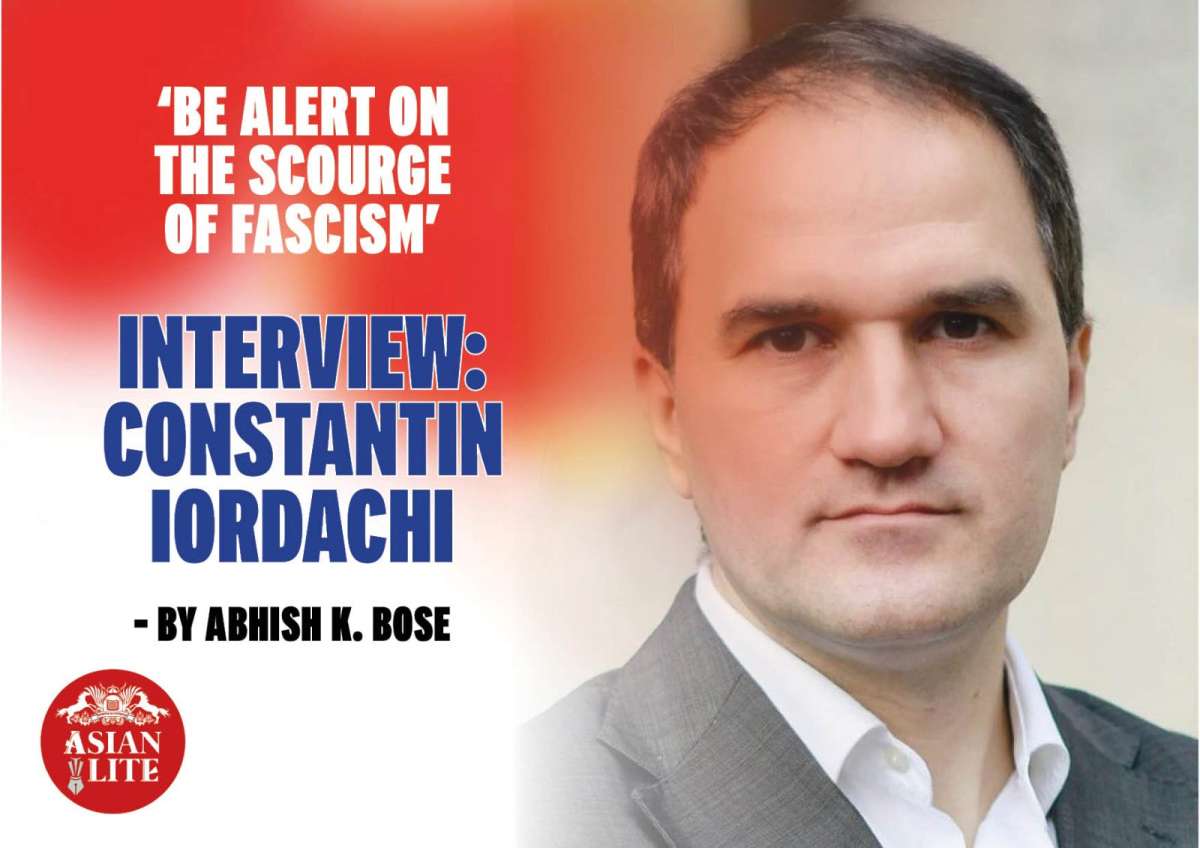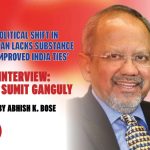Interview with Prof. Dr. hab. Constantin Iordachi, Professor of history and a leading scholar on the history of fascism – By Abhish K. Bose
Constantin Iordachi is Professor of History at the Central European University, Vienna, co-director of Pasts, Center for Historical Studies; co-editor of the journal East Central Europe, and president of the International Association for Comparative Fascist Studies. His research and academic teaching focuses mainly on comparative approaches to historical research; totalitarianism and mass politics; and citizenship and minorities in Central Europe. His publications include: Comparative Fascist Studies: New Perspectives (London: Routledge, 2010); Liberalism, Constitutional Nationalism, and Minorities: The Making of Romanian Citizenship, c. 1750–1918 (Leiden: Brill, 2019); The Fascist Faith of the Legion “Archangel Michael” in Romania, 1927–1941. Martyrdom and National Purification (London: Routledge, 2023); Beyond the Fascist Century (London: Palgrave Macmillian, 2020); and Occupation and Communism in Eastern European Museums (London: Bloomsbury, 2021). Asian Lite’s Abhish K. Bose discusses the tendencies of different kinds of instability across the globe and the scourge of Fascism.
Excerpts from the interview
Abhish K. Bose: The world is plagued at present by economic depression, climate-change related disasters, fissures in democracies, atrocities against women and minorities, insecurity as a result of wars, global power inequalities, depletion of civil societies, and the damages sustained due to the Covid 19 pandemic. Do you think these signs presage the emergence of fascist regimes in the world?
Constantin: In general terms, it is—of course—a truism to say that our world is in full transformation, as human societies are always in a state of flux and motion. But it is undeniable that the pace of change has greatly accelerated in the last two to three decades, in multiple fields. New technologies have greatly impacted our lives, increasing our comfort and efficiency but alsouprooting traditional ways of life. Oftentimes, new technological products resemble magic, nourishing our illusions that we can become full masters of the material world; at the same time, the global pandemic and the dramatic effects of climate change have exposed the fragility of our advanced civilization and its precarious equilibrium. Economic globalization and integration have led to unprecedented prosperity around the world, lifting entire regions or countries out of poverty. Yet, not everybody has benefited equally from these developments: the few rich—especially multinational corporations—have become much richer while workers in developing countries gained at best a minimum decent income (which is, of course, an achievement that should not be minimalized). At the same time, the standard of living of the middle classes in advanced economies has largely stagnated, while employment opportunities for blue- and white-collar workers have greatly shrunken, making them believe there are, actually, at the losing end of globalization.
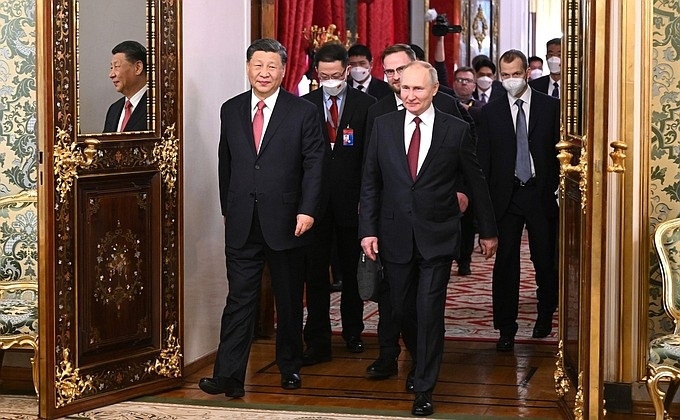
From here internal calls for protectionism and a reversal of globalization. In the international realm, some old or newly emerging ‘great powers’—most notably Russia, China, and Iran—contest the US-led liberal international order instituted after World War II and demand their own sphere of influence in a reorganized, multipolar world. In this context, we see a move away from free trade,economic integration, and political cooperation specific to globalization, and the rise of nationalism and economic protectionism, accompanied by a growing division of the world in rival geo-political blocks, leading to quasi-separation, and an exacerbation of militaryconflicts in the frontier zones between these blocks.
Taken together, these developments have increased the middle classes’ sense of insecurity and precarity. The important side-effectsthat you mention do indeed resemble the constellation of factors that led to the rise of fascism in the interwar period: economic stagnation or recession, the high rate of inflation, and the continuous growth of social inequalities are weakening the middle classes in emerging but also in established democracies, while the growing political polarization risks fracturing our societies, facilitating the spread of authoritarianism and military values around the world. Surely, this constellation of factors does not necessarily lead to fascism, as history never repeats itself in the same form, but the danger of political radicalization to right-wing extremism scapegoating ‘the Other’ for the growing economic difficulties encountered by large segments of the population is looming large. In fact, in some societies this phenomenonhas become a reality, as some far-right parties are increasingly ‘normalized’ and accepted as partners in ruling coalitions, while centrist leaders drift to far-right agendas.
Abhish K. Bose : Fascist ideology represents a synthesis of anti-materialist socialism and nationalism. It is thus a movement in political ideas peculiar to the twentieth century with its own intellectual and historical roots and rationale. Do you think fascism and communism mirror each other?
Constantin : Fascism is a late comer in politics: as a political movement, it emerged after World War I, at a time when there already existed widespread mass political ideologies, most importantly liberalism and communism. From its inception, fascism was compared and contrasted to liberalism, but also—almost obsessively—to communism, its professed archenemy. This comparison has been highly politicized: usually, people on the left-side of the political spectrum reject the comparison, denouncing it as a form of anticommunism, on the count that it implicitly puts communism on the same par with the greatest evil in history, fascism. On the other hand, people on the far-right side erroneously argue that fascism was no more than a ‘legitimate’ defense against Bolshevism; ultimately, this perspective attempts to exculpate fascists’ responsibility for the Holocaust and to downplay its uniqueness, portraying Holocaust as a ‘defensive reaction’ to the Gulag.
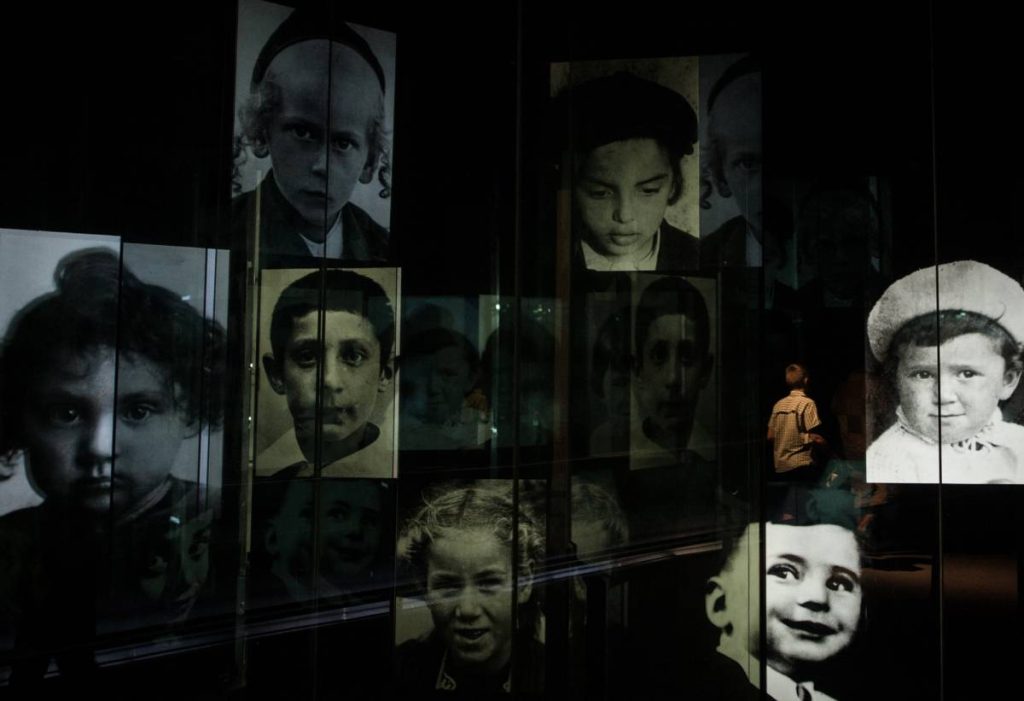
As a historian, I argue that comparisons are always useful and instructive if their intellectual aims and methodological framework are clear and sound. The fall of communism and the end of the Cold War have enabled historians to take a retrospective view of the short twentieth century (1918-1989/1991), thus making the comparison between fascism and communism unavoidable, at least as far as the history of Eastern Europe is concerned. That is because fascism and communism are two related and, in certain ways, interdependent, mass political ideologies. Both emerged as revolts against liberal democracy and strove to provide autopian alternative to it, either in the form of a backward-looking utopia that promises to restore the lost glory of the unified and homogeneous nation, as in the case of fascism, or in the form of establishing a perfectly equalitarian society, freed from human exploitation and alienation, as in the case of communism.
In practice, both ideologies turned into exclusivist political religions, demanding total regimentation and devotion to their cause, the concentration of power in the hands of a strong party and leader, and a centralized state based on coercion and repression. In view of their similarities, and their entangled histories, the two ideologies and the complex set of movements/parties and regimes they generated, can be fruitfully analyzed together. Yet, it should be noted that the act of comparison does not presuppose total likeness. Despite their superficial similarities, there are, however, major differences between fascism and communism at the level of both ideology and practice. The origins of the two ideologies are different, one is totalitarianism of the left, rooted in the idea of equality, the other is totalitarianism of the right, rooted in the idea of hierarchy and domination.
The communist ideology has a longer and much richer genealogy, at the center of which stand Karl Marx and his key work, Das Kapital, but also Friedrich Engels, Vladimir I. Lenin, and then Joseph Stalin,Mao Zedong, and other theoreticians and practitioners of national paths to building ’real existing socialism’ (I leave aside the rich political and intellectual tradition of non-Marxist socialism). In contrast, the fascist ideology crystalized much later, and lacked a similar level of elaboration, political unity, and cohesion. For a time, fascist movements and regimes had two competing centers, Rome and Berlin, and were never as tightly integrated as the Communist Internationals were (especially the Third International, the Comintern), also due to the fact that nationalist utopias are ultimately incompatible with each other. Last but not least, Communist regimes were long-lived, managing to consolidate and to survive over seventy years in Soviet Union, and over forty years in Eastern Europe. Some regimes, in China, Cuba and North Korea, for example, have even survived the fall of the Soviet Union. In contrast, fascist political experiments were short-lived and invariably ended in wars of aggression and annihilation.
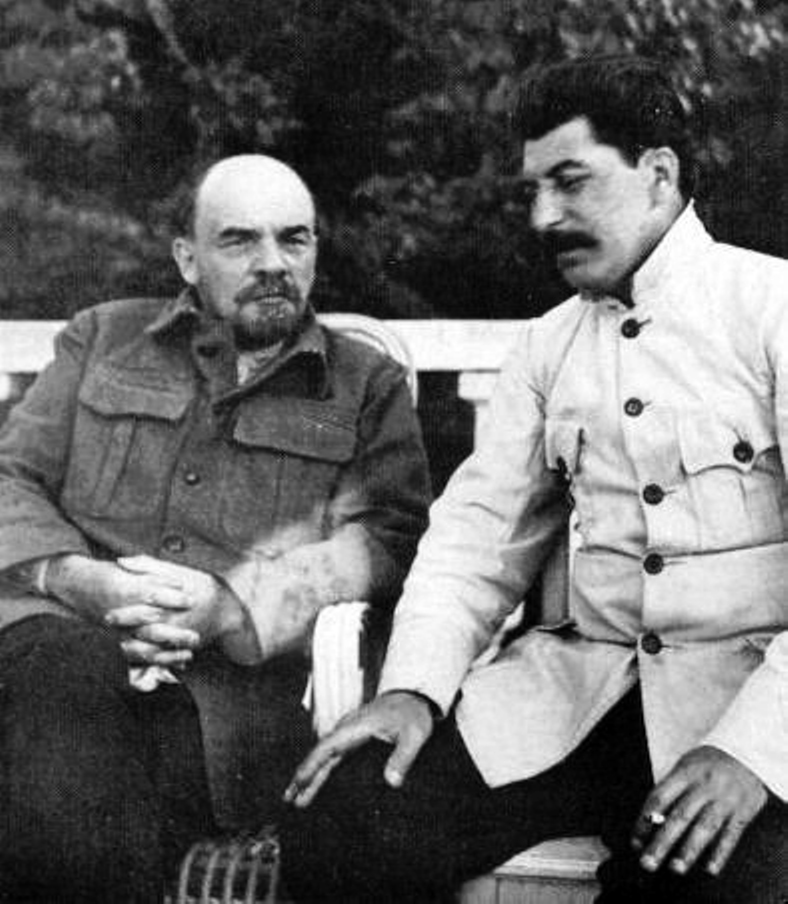
We can conclude that, although political extremes end up resembling each-other in terms of fanaticism and totalitarian outlook on politics and society, the content of the two ideologies, their revolutionary projects of transforming society and their prototypes of the ‘new man’ and ‘woman’ were distinct and resulted in markedly different societies, one based on a class utopia, the other on a racial one. In the end, however, the role of social scientists in comparing the two political phenomena is not to assign or shift blame and to establish moral hierarchies by entering into the highly problematic logic of “competitive martyrdom” counterposing the Holocaust to the Gulag, but to try to understand why these ideologies, movements, and regimes, gained political dominance, how they have impacted our societies and, most importantly, how to prevent political extremism from rising again.
I personally come from Central Europe, one of the few regions of the world that experienced both types of totalitarian dictatorships; many countries in the region, including Romania, my country of origin, set up truth commissions that condemned both forms of totalitarianism, fascist and communist. I personally had the opportunity to work for one of the two commissions; my participation was motivated by professional interest and civic responsibility, but also by a sense of moral duty to the memory of my father, who taught me to resent dictatorship, and who wished ardently to live in a democratic society (a dream only fleetingly fulfilled).
Abhish K. Bose : Hitler used perfectly legitimate democratic procedures to hijack Germany into the orbit of fascism. What, in your opinion, are the points of vulnerability in modern democracies that make it gravitate towards the fascist mode? Do you think that Indian democracy is poised in this way?
Constantin : As a political force, fascism proved vulnerable under authoritarian regimes, which had the capacity to coopt or violently crash fascism, in an incipient form; and in consolidated democracies, which managed to marginalize fascism by rendering it electorally insignificant. In turn, fascism blossomed in unconsolidated or unfunctional, indeed decaying, democracies. In those contexts, fascists could take advantage of the political freedom provided by parliamentary regimes, while at the same time exploiting the flaws of the existing democratic order, hit hard by economic recession.
Hitler’s accession to power is a perfect example of that: NSDAP ran in elections and managed to gain relative electoral majority by capitalizing on a radical message of ‘salvation,’ while at the same time denouncing democracy and the very existence of the regime of political pluralism that made their legal existence possible. The Nazi state was built on the ruins of the Weimer Republic and remained, in a way, parasitic on in. Indeed, Hitler became Chancellor by legal means but soon forced the rules of the existing political system by hijacking the office of the Presidency, as well; he then redefined his political legitimacy by adopting the title of the Führer, thus transforming his legal-rational legitimacy into charismatic authority.
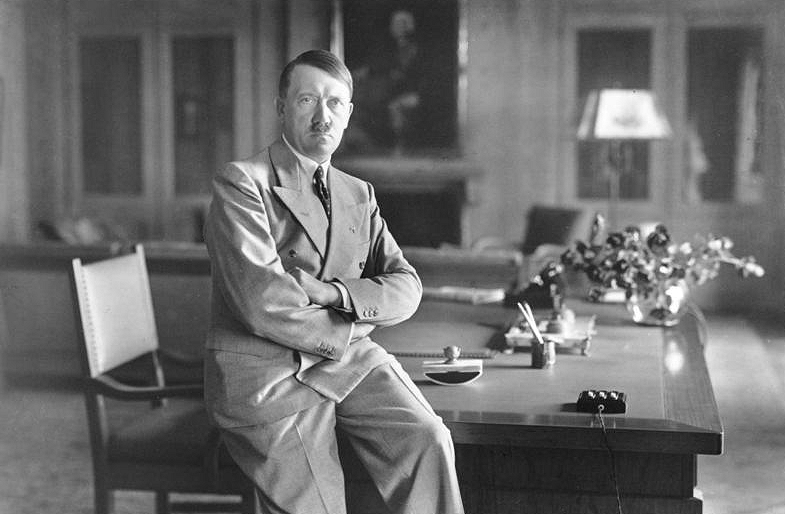
The next radical steps were to wipe out the political opposition, to abolish the rule of law and to unleash a large-scale, murderous campaign of racial cleansing. What are the points of vulnerability in modern democracies that can be exploited? Surely, perfect democracies—just like perfect societies—do not exist. Democracies are vulnerable precisely because they are very complex and delicate mechanisms, that can be easily disturbed. In democratic societies, citizens have rights and can defend their interests; consequently, the decision-making process is slow, because it is based on deliberations at various levels and on multiple forms of ‘negotiations’ among a variety of actors. This enables its enemies to deceivably argue that democracies are inefficient, chaotic, and seemingly “corrupt.” By vocation, democracies also shelter the interest of all inhabitants, including various types of minorities.
This virtue is routinely misrepresented and exploited by nationalists or fundamentalists who argue that democracy works for the interest of ‘aliens’ rather that of the ‘titular nation.’ There are thus many potential dangers to democracy, internal as well as external, but fascism is probably the greatest one, because it not only negates freedom and pluralism, but, most importantly, our common humanity. I personally believe that democracies are, arguably, superior to all other forms of government because they have the capacity to constantly correct themselves through open debates and free elections. In turn, authoritarian societies are compelled to either rebel or wait the life cycle of a dictator to correct the political course.
Abhish K. Bose : Hannah Arendt called fascism the ‘ temporary alliance of the elite and the mob’. The only thing that’s ever beaten it was an alliance of the centre and the left. Could you explain the relevance of such an alliance to resisting fascism in the world today?
Constantin : I have already mentioned that fascism thrived in unconsolidated democracies, in which the body politics was fractured by political polarization and fratricide in-fights. Fascism managed to capture power by capitalizing on their anti-communist message, which enabled them to coopt elements of the traditional elites, such as the monarchy, the Church, the army, andconservative parties. At the same time, it benefited from the collapse of the traditional massparties, as well as the growing divisions within the left, and managed to successful enroll part of the working class by mobilizing them to the national cause. It was in this context that an aggressive minority, the fascists, could capture the political power.
Today, we see a growing political polarization between the left and the right; this polarization is very harmful for democracy because it destroys the political center, it politicizes issues of common interest, and it ultimately leads to ideological indoctrination, fanaticism, and the demonization of the Other as irreconcilable enemies. I have read a great number of newspapers from the interwar period and I was really struck by the fact that, although very polemical, most newspapers were in fact deeply engaged ideologically and only spoke to the converted instead of genuinely engaging with the arguments of the other side; sadly, this dialogue of the deaf, in which people seemingly exchange views but in fact none is listening to the other is characterizing, more and more, our contemporary world, as well.
It seems as if the idea of society, as a whole, and even that of reality as such, has melted away, and we now live in parallel and closed-in universes, namely our own media algorithms, populated by likeminded people. Or, democracies can only function effectively when there is a large consensus in society over democratic values as well as the rule of law and trust in the mission and functioning of representative institutions, such as the press, the judiciary, the parliament, and political parties.
Abhish K. Bose : Fascism exerts its hold when people’s faith in parties and ideologies decline, generating the craving for strong leaders of the messianic mode. When people loses faith in democratic institutions and processes, especially in the wake of crisis situations like war, genocide, national disarray, fascist tendencies tend to emerge. The Russian invasion of Ukraine is on-going and autocratic tendencies are prevailing in a number of countries. Going by this trend how do you evaluate contemporary democracies and their susceptibility to fascist tendencies?
Constantin : So far, we have spoken mostly about fascism. However, it should be noted that, historically, fascist movements originated as small extremist groups on the margins of existing pluralistic political systems. In times of crisis, their radical message grained tractions and they managed to grow and capture the political power. Yet, I think that today, the main danger to democracy are not the small and marginal fascist or neo-Nazi extremist groupings, who are still on the fringes of the political system but the radicalization of the mainstream and the rise of new types of hybrid authoritarian regimes. To be sure, fascist and neo-Nazi groups are very harmful to democracy and very dangerous, indeed, as the recent plot to overthrow the government in Germany, discovered in December 2022, revealed.
Their small size is not an argument for ignoring them: history shows that in times of crises such antisystem movements of change can grow exponentially, almost overnight. But again, the most immediate danger to democracy today is more mundane: biased media that leads to polarization and demonization of political adversaries, populist politicians who stir and manipulate negative emotions, thus paving the way, consciously or unconsciously, to authoritarian regimes, and tech companies who spy on our privacy and sell our data for purposes of political manipulation. There is a great danger that we will end up living—apparently, even without noticing—in hybrid authoritarian regimes which maintain a façade of democracy, high-tech modernity, and even some generic liberties (the right to private property, to free travel, etc.), while at the same time restricting basic political rights and liberties.
Invariably, such ‘soft’ authoritarian regimes tend to ossify over time, becoming more rigid and appealing to ideological indoctrination and hard coercive measures to retain power. Putin’s Russia, for example, warns us that the toxic combination of personality cult, national messianism, victimhood nationalism, and social militarism can lead to wars of aggression and a hardeningauthoritarian regime.
Abhish K. Bose : What is the role propaganda plays in spreading and popularising fascism? What is it in the collective psyche of a people that disposes them towards fascist modes of governance? It is that people get weary of freedom, when it cannot be combined with bread? Do boredom and depression make people crave for strong leaders who are assumed to be larger-than-life? Or does it owe more to the moral decay of a people, which aggravates their secret affinity to dictators and tyrants: leaders with criminal propensities?
Constantin : Well, there is no one single fascist personality; as fascism is a ‘catch-all-party,’ you can find all the profiles that you mentioned within fascist movements. Historically you can find veterans brutalized by the war experience or depressed by post-war realities and injustice; you can find youngsters striving for adventure, alienated by the unjust socio-political system or simply recruited into seductive yet violent youth subcultures; you can find bureaucrats or low middle class elements who felt deeply insecure of their social position and attempted to use the state to eliminate competition from rival groups; you can find members of the middle class who, although managed to climb on the social ladder, nevertheless felt hampered in their social ascension by ‘rival’ minority groups; you can find former aristocrats who wantedto recover their lost privileges by restoring society to its former shape.
Fascist movements and regimes managed to build a powerful coalition of the marginals; they were successful in capturing negative public feelings, such as anger and resentments, amplifying and channeling them against various racial, ethnic, or political minorities, stigmatized as alien to the body of the nation. Propaganda, and a campaign of permanent mobilization, were key to creating and sustaining such a heterogeneous and ultimately unstable emotions-based community.
Abhish K. Bose : Creating myths was an important tool for historical fascism. What is the role technology plays in the topical period in creating and disseminating fascist myths?
Constantin : Fascism is a form of mass politics, and in this sense, it is very well-tuned to modern politics. First, its ideology is built on the ‘bedrock of nationalism,’ as George Mosse once put it, and this gave it an enormous power in manipulated collective identity discourses. Second, fascism made innovative use of the power of the myths in politics, mostly importantly the myth of the rebirth and regeneration of the nation through cleansing. At the turn of the century, the anarcho-syndicalist thinker George Sorel emphasized the key role of myths in mobilizing political action, while Gustave Le Bon provided, in The Crowd: A Study of the Popular Mind, a textbook of mass manipulations. Both thinkers shaped fascists’ approach to politics.
Italian Fascists and German National Socialists tended to avoid the written press (calling it the ‘liberal’ or the ‘lying’ press) and employed instead innovative forms of propaganda, most importantly the radio and the cinema, to spread the cult of the leader and to mobilize the masses. Fascists were very skillful in using modern design and technology in their political campaigns—such as visual posters, uniforms, automobiles, and airplanes—to create and market their own, easily recognizable ‘political branding.’ By these means, fascism cultivatedthe illusion of a regenerated, harmonious national community; its electoral popularity was based on the mobilization of the masses through the aestheticization of politics, but its hold on power could only be sustained through violence, repression, and war.
Abhish K. Bose : What is the synergy between financial capital and the reigning political elite? It is postulated that political ideologies and their manifested forms in governmental authority are furthered by financial capital. Why does capital favour one ideology in preference over the rest at the given juncture in history? How do you view the nexus between world capital and right wing ideologies?
Constantin : Political regimes are very complex constructions. They are not simply a reflection of a given ideology or class interest, but composite edifices based on the interplay of many factors. Obviously, the existing economic system, in general, and the power of financial capital playsa role in shaping political regimes, but that can work in a multitude of ways. Karl Polanyi famously and intriguingly argued that interwar fascism was produced by the crisis of 19thcentury liberalism, mostly the instance of the finance capital on maintaining the gold standard, which led to austerity-based financial policies that ruined the middle class, paving the way to fascism. In our age, I guess a key question is whether capitalism is bound to function in democratic and pluralistic societies, or, in periods of crisis and “financialization” of the capital, it can accommodate to, or even strive for, strong-hand authoritarian regimes.
In Western Europe, capitalism and liberal democracy tended to evolve in tandem in the modern period, but of course this has been a relation full of great tensions, as capitalism creates inequalities while democracy strives to forge legal-political equality but also a welfare state through economic regulations and redistribution. We cannot predict how far the current wave of far-right radicalization I described earlier will go, but to date the global financial capital and multinational corporations, which are of course profit-oriented, have proven that they can unscrupulously cooperate with various political regimes, including authoritarian one. On the long run, however, technological innovation and competition tends to thrive in open societies based on the freedom of speech and research, and a better fulfillment of human potential; that is why I think advanced democracies will always retain a technological edge over authoritarian regimes. This hypothesis, and the causal link between capitalism and liberal democracy, is currently put to test, however, especially by the rise of China.
Abhish K. Bose : Do individuals gravitate towards a particular ideology on the basis of a largely subliminal elective affinity to it, both material and psychological? Or, are they brainwashed and induced into doing so?
Constantin : This is a key social science question, and I guess every researcher would like to know the definite answer to it. The fact is, however, that ideological affinities are very complexphenomena. We cannot reduce them to material interest or affect only but are always due to a complex combination of factors, from phycological profiles and predispositions to education,upbringing and social milieu, and to perceived material or class interests, to name but a few.These complicating factors produce various and dynamic constellations of individual and collective consciousness. New, innovative studies show that ideological reproduction in the family is far from automatic, and that far-right (hawkish) parents are more successful in passing their Manichean worldview to their children than liberal (dovish) parents.
Political socialization outside family seems to be a highly important factor; in the case of fascism, the rise of violent paramilitary youth subcultures and their development into large protest movements fueled by resentments played an important role. Once far right activists enter the slippery slope of radicalization, based on a community of radical values, and on a set ofseductive rites and rituals, they find it difficult if not impossible to get off that track. Underground communities of likeminded activists tend to further accelerate the process of radicalization leading to the adoption of political violence. It is difficult to say if it is ideology or the process of common socialization (e.g. feelings of camaraderie) that plays the decisive role in radicalization to violence, since beliefs are not always or not necessarily translatedinto actions, and vice-versa. I would say, most of the time, radical ideas and actions shape and fuel each-other in dynamic ways.
Abhish K. Bose : It is said that violence has an atavistic appeal to human psyche. Does this inherent trait of human violence serve as a natural catalyst for the emergence and consolidation of fascism?
Constantin : Fascism promotes a radical fantasy of salvation through cleansing. Fascists promise to restore an ideal, harmonious national community by putting an end to its decadence and restoring the nation’s golden period and authenticity (identified, in most cases, with the ‘glorious Middle Ages’). To achieve these goals, fascism cultivates a masculine culture of violence, both verbal and physical. Needless to say, the paramount importance attacked to the role of violence in modern politics was by no means a fascist invention; I already referred to Sorel, who pointed out to the role of violence in changing society; so did the anarchists and later, the Bolsheviks. On the right-side of the political spectrum, the Italian Futurists, who were fellow travelers of fascism in Italy, made the eulogy of violence as a form of ‘social catharsis’ and even spoke of the ‘beauty of war.’
The poet Gabriele D’Annunzio staged an innovative paramilitary political experiment in Fiume, called the Italian Regency of Carnaro, which served as a model for Mussolini. On their turn, fascists fully embraced violence as a means of transforming society. Violent cleansing became the central tenant of the fascist ideology; its message capitalized, time and again, on the role of violence in renewing society.But, as I have tried to argue in my writings, and also in the course of this conversation, fascism did not emerge as a ready-made product, but was the end result of a long process of radicalization. If we want to block the rise of fascism in today’s world, we should pay attention to the spread of political violence and try to prevent the kind of spiral of violence that led to terrifying consequences in the interwar period. Invariably, the process of fascistization starts with a sharp political polarization between the right and the left, the adoption of bellicose, militant language in politics and journalism, marked by the glorification of only a part of the people as the real people (the ‘qualitative people’ as Umberto Eco called it) and the exclusion, demonization, and the dehumanization of the ‘Others,” stigmatized as enemies.
The process of radicalization then continues with the open adoption of political violence in street fights against political opponents and terrorist assassinations of ‘treacherous politicians.’ Attacks on ‘traitors’and ‘collaborators’ is then amplified with attacks against entire collectivities, be they political communities (the liberals, the social democrats, the communists), or ethno-religious communities such as the Jews in the interwar period, or the Muslims or the Roma nowadays, identified as aliens in the body of the nation and as enemies that need to be annihilated. The road is thus paved for the implementation of projects of large-scale violent cleansing. In unconsolidated democracies, societies are largely unable to neutralize this process of radicalization, due to the weakness of the civil society, the corruption and inefficiency of representative institutions, and the lack of the rule of law.
Oftentimes, authorities lack adequate legislation and effective strategies of deradicalization and react violently and even lawlessly to the rise of extremism. Temporarily, such police tactics can prove efficient; on the long run, however, they pour gasoline on the fire. What should we learn, then, from these historical trajectories? Historical awareness and education for democracy helps prevent radicalization, but we must be aware that people tend to learn the hard way, from their own painful experiences, rather than from the received wisdom. That is why history is still an open book and each generation searches its own path.
I guess my bottom-line message is this: be protective of your democratic rights and never give them up or delegate them to a would-be savior of the nation—most often a seductive strongmanwho promises protection and ultimately, a “paradise on earth” in a harmonious and homogenous community—because you then lose the ability to defend yourself and become vulnerable to political abuses. Such political concessions based on trust might seem minor in exchange for the promised social or national ‘protection,’ yet they prove highly consequential. Democratic rights can be easily lost but are increasingly difficult to regain; most often, their restoration necessitates a mass revolt that can often result in violent clashes and casualties. There is no substitute for constant vigilance because, as we know, the sleep of reason produces monsters.

